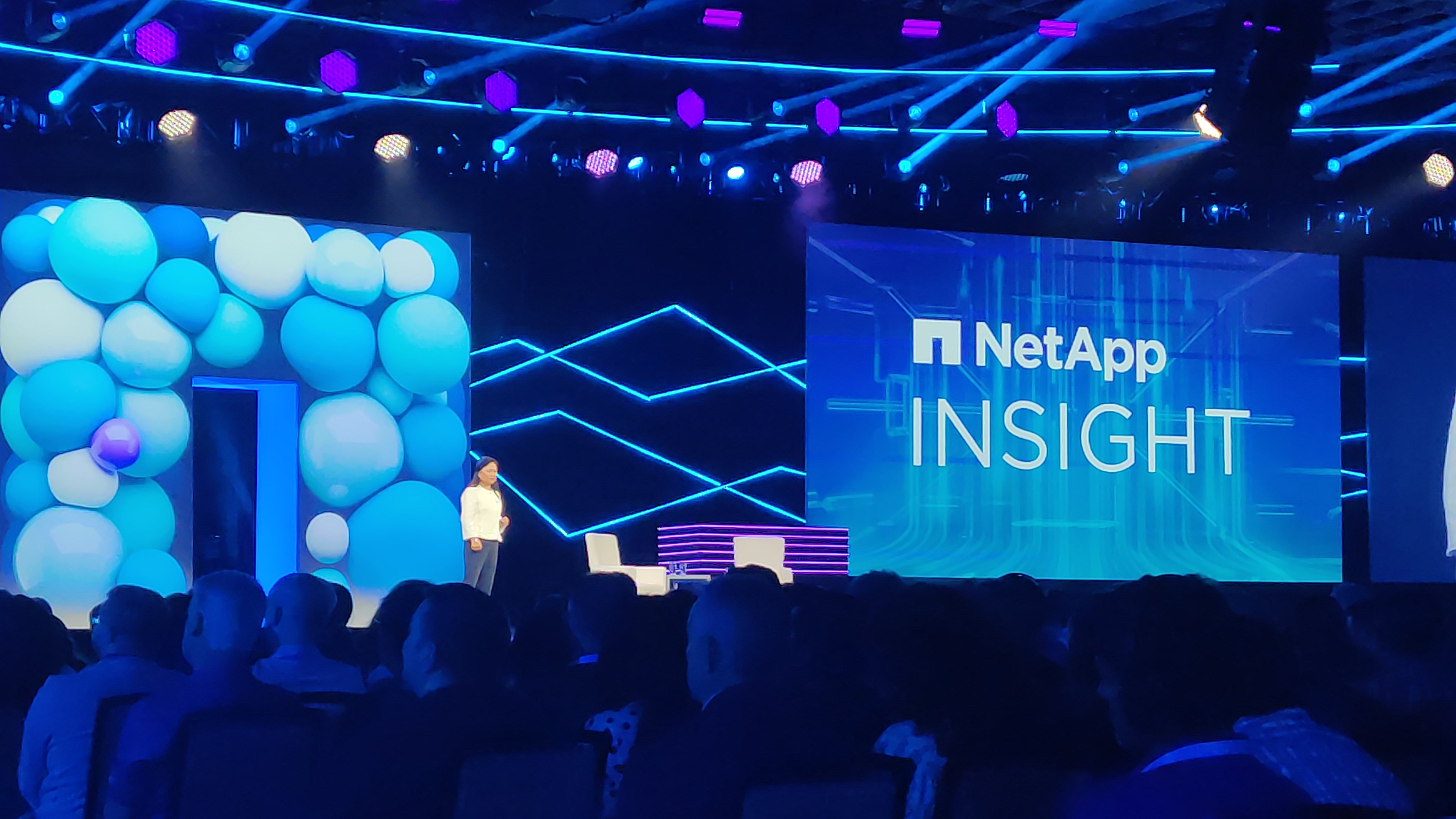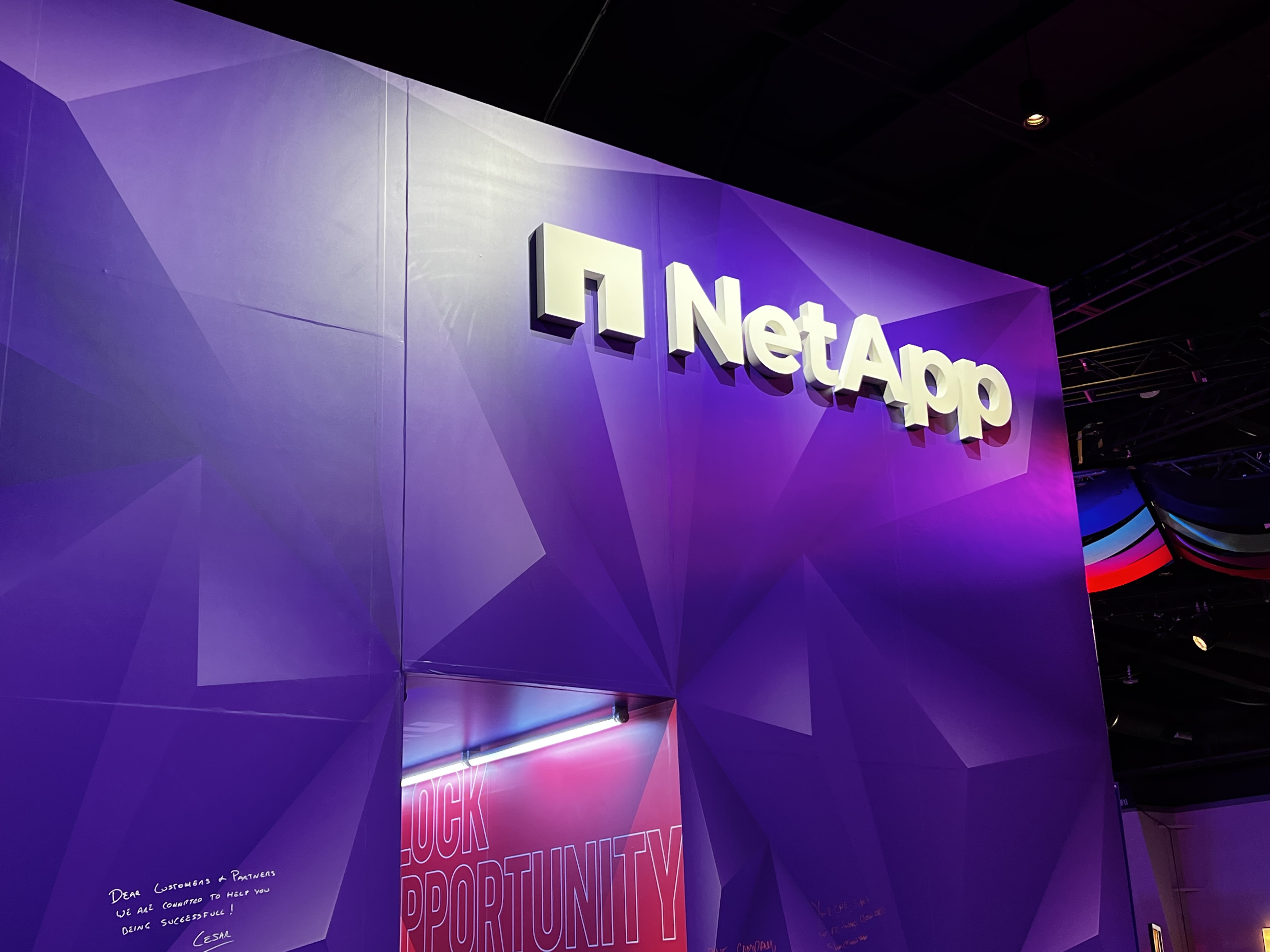NetApp lands its ‘intelligent data infrastructure’ rebrand at Insight 2024
The data veteran is keen to do for AI what it did for hybrid cloud – and is calling in all its hyperscaler connections to get there


NetApp Insight 2024 picked up where the company left off in 2023, recommitting itself to building a bridge between AI platforms and enterprise data, hammering its new mantle as the intelligent data infrastructure firm.
George Kurian, CEO at NetApp, was emphatic about this promise during his opening keynote presentation, stating that with NetApp businesses will have the best data architecture for AI “bar none”.
He referenced his previous commitment to take a lead in the hybrid cloud space, which he made shortly after taking the helm at NetApp in 2015.
“We told you that we would deliver the intelligent data fabric for the hybrid cloud era and today we are making that very same commitment for the age of data and intelligence,” he proclaimed.
“We will build you the intelligent data infrastructure that builds a bridge across the chasm that exists between your data, in a way that allows you to manage your data in the way that it is supposed to be managed so that you can leverage it for insight and competitive advantage.”
Matt Watts, chief technology evangelist at NetApp, tells ITPro that the firm’s decision to rebrand, eschewing the somewhat constricting ‘storage company’ title, was centered around showing that this moniker misses some of the value it can offer.
He noted this reflects a broader shift in the IT landscape, where formerly rigid categorizations have become slightly more fluid.
Sign up today and you will receive a free copy of our Future Focus 2025 report - the leading guidance on AI, cybersecurity and other IT challenges as per 700+ senior executives
“I think what we're sort of seeing in the industry is this redefining of these very traditional categories that go back to the 80s, 90s, and 00s,” he explained. “The other part of it is that the infrastructure has real value to add to the environments that it underpins.”
At NetApp Insight 2023, Kurian unveiled this new vision for NetApp, which looked to put the firm on solid grounding to capitalize on the next AI-driven era of enterprise IT. This year’s event was all about maintaining this momentum and fleshing out what this truly means for businesses of all sizes.
NetApp presses its AI advantage
NetApp is focused on capturing value for businesses looking to get the most out of AI. Throughout NetApp Insight 2024, the firm explained this in detail, unpacking how it sees enterprises putting their data infrastructure to work in the year ahead.
This clarity isn’t a given when it comes to AI. However, NetApp is confident that its customers are better positioned to understand and take advantage of its platform for success, and it prioritized putting these successes front and center throughout the event.
Hoseb Dermanilian, senior director and global head of AI go-to-market and sales at NetApp, tells ITPro that NetApp sees the disparity between large and small businesses when it comes to AI readiness.
There’s no doubt larger enterprises are looking to seize the moment. This much was made clear during this year’s keynote presentations, including testimony from major customers such as Johnson & Johnson and Dreamworks, detailing their transformation projects, and how NetApp’s solutions helped them get the most out of their AI implementations.
RELATED WHITEPAPER

“The [larger] enterprises are now in the POC stage, and what they’re looking at is how they can use the hyperscaler tools and the open source models but adapted to their business," he tells ITPro.
"That’s where we come in, and we create that hybrid data pipeline with our first party native services.”
But smaller, under-resourced enterprises will understandably be slower to make significant new investments in transforming their IT stack with AI. It's here that to NetApp still has some work to do, in showing smaller businesses how they can really benefit from modernizing their data infrastructure to leverage AI.
“If you look at the [current] landscape, you’ve got the Fortune 500 who are building their own clusters to train the models on,” Hoseb adds. “Then you’ve got the bigger enterprises, and then the small-to-medium [enterprises] who are still trying to figure out the ROI of AI.”
NetApp leans on hyperscaler ties to face down competitors
NetApp placed heavy emphasis on hybrid multi-cloud architectures throughout Insight 2024, as well as its quest to do away with AI-inhibiting data silos.
First party integrations with the hyperscalers have been something NetApp has touted as setting it apart from the competition, and it has a strong argument.
If the future lies in a multi-cloud approach, NetApp is well-positioned to capture demand for data solutions that integrate natively with the big three hyperscalers.
The company’s competitors are yet to catch up on this front. Watts explained he thinks NetApp was able to get to this privileged position due to the fact it was the first company to offer its service as a third party into the hyperscaler’s cloud environments.
“We built a very early relationship with AWS, Azure, and Google Cloud by effectively running our storage operating system as a third-party service inside their environments,” he explains.
“We were there with our third-party service, which enabled us to open the door to then bring in our technology as a first-party service. That’s how it happened and then it happened very quickly across all three of them.”
NetApp’s rivals will be looking to reach integration parity but ultimately it will be up to the hyperscalers to decide how many first-party storage services they want to run. Until them, NetApp will continue to enjoy a first movers' advantage on this front.
At the same time, NetApp knows it cannot rest on its laurels. In this regard, it did a good job demonstrating it was continuing to deepen these relationships, as well as continuing to improve its price-performance offering for customers in the public cloud.
Last year NetApp and Google Cloud jointly launched Google Cloud NetApp Volumes, and this year, Sameet Agarwal, VP of engineering of Google Cloud’s storage arm announced that NetApp volumes will become the first-class data store in Google’s Vertex AI platform.
This will mean businesses will be able to access their data, regardless of whether it’s on prem or in the Google Cloud via NetApp’s ONTAP architecture, and use it with Google’s AI toolkits to build, train, and deploy their own models.
Finally, apart from the hyperscalers there is one other company who will be key to NetApp’s success in the AI era: Nvidia.
This looks to be in good stead with Jensen Huang, CEO at Nvidia, singling out NetApp at this year’s GTC conference as a core partner in “a new wave of business opportunity”. The announcement of imminent validation testing of its AFF A90 platform for Nvidia DGX SuperPOD certification shows, building on its previous BasePOD certification, is a healthy indication that NetApp intends to remain a leading player in the AI data infrastructure space.
Taken all together, NetApp spent Insight 2024 doubling down on all the areas that count to its customers. As businesses of all sizes look to turn on AI workloads and make the most of their data, NetApp continues to make a strong argument for itself as the ‘bridge’ in Kurian’s metaphor – an ally with the decades of expertise, helped in no small part by the extent of its public cloud relationships.

Solomon Klappholz is a former staff writer for ITPro and ChannelPro. He has experience writing about the technologies that facilitate industrial manufacturing, which led to him developing a particular interest in cybersecurity, IT regulation, industrial infrastructure applications, and machine learning.
-
 OpenAI says prompt injection attacks are a serious threat for AI browsers
OpenAI says prompt injection attacks are a serious threat for AI browsersNews OpenAI details efforts to protect ChatGPT Atlas against prompt injection attacks
-
 European Commission approves data flows with UK for another six years
European Commission approves data flows with UK for another six yearsNews The European Commission says the UK can have seamless data flows for another six years despite recent rule changes
